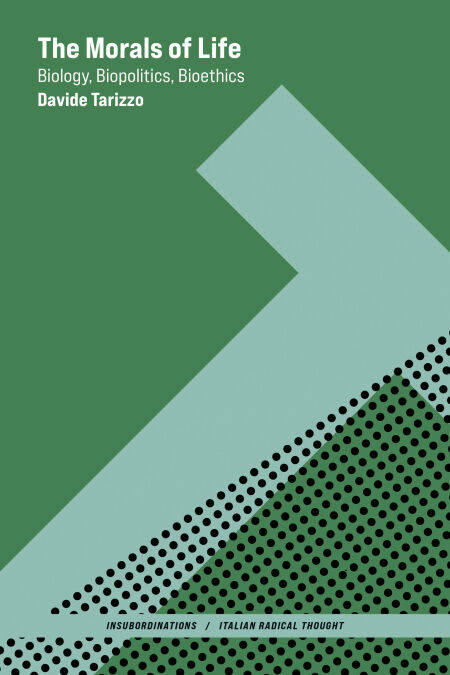
Bedankt voor het vertrouwen het afgelopen jaar! Om jou te bedanken bieden we GRATIS verzending (in België) aan op alles gedurende de hele maand januari.
- Afhalen na 1 uur in een winkel met voorraad
- In januari gratis thuislevering in België
- Ruim aanbod met 7 miljoen producten
Bedankt voor het vertrouwen het afgelopen jaar! Om jou te bedanken bieden we GRATIS verzending (in België) aan op alles gedurende de hele maand januari.
- Afhalen na 1 uur in een winkel met voorraad
- In januari gratis thuislevering in België
- Ruim aanbod met 7 miljoen producten
Omschrijving
A theory of biopolitical power that updates Foucault, illustrating the moral implications of modern evolutionary theory.
In our day, the individual has become “a life,” the singular of the plural noun “population.” From this new understanding of what it means to be human comes a new form of biopolitical power with a new set of moral rules. In The Morals of Life, moral philosopher Davide Tarizzo presents a theoretical framework for understanding this transformation of the old-fashioned “government of living beings,” as Michel Foucault characterized biopolitics, into a new government of modular living beings, as well as a template for making sense of biopolitical power that operates on the scale of populations rather than individuals.
Tarizzo traces population thinking, the notion of modular optimization, and other conceptual keystones of the current biopolitical regime (an “ethopolitical regime,” in the author’s terms) to their origins in twentieth-century biological thought—more precisely, and critically, evolutionary theory. Neo-Darwinism, Tarizzo argues, should be seen not only as a scientific paradigm but also as a philosophy per se, because it is evolutionary theory that today provides an answer to the old philosophical question: What is man? This new kind of philosophy, his book suggests, largely determines the way in which people look at themselves and society. Not only does it contribute to designing new technologies of power, but it also fosters subjection to the new ethopolitical regime.
In our day, the individual has become “a life,” the singular of the plural noun “population.” From this new understanding of what it means to be human comes a new form of biopolitical power with a new set of moral rules. In The Morals of Life, moral philosopher Davide Tarizzo presents a theoretical framework for understanding this transformation of the old-fashioned “government of living beings,” as Michel Foucault characterized biopolitics, into a new government of modular living beings, as well as a template for making sense of biopolitical power that operates on the scale of populations rather than individuals.
Tarizzo traces population thinking, the notion of modular optimization, and other conceptual keystones of the current biopolitical regime (an “ethopolitical regime,” in the author’s terms) to their origins in twentieth-century biological thought—more precisely, and critically, evolutionary theory. Neo-Darwinism, Tarizzo argues, should be seen not only as a scientific paradigm but also as a philosophy per se, because it is evolutionary theory that today provides an answer to the old philosophical question: What is man? This new kind of philosophy, his book suggests, largely determines the way in which people look at themselves and society. Not only does it contribute to designing new technologies of power, but it also fosters subjection to the new ethopolitical regime.
Specificaties
Betrokkenen
- Auteur(s):
- Uitgeverij:
Inhoud
- Aantal bladzijden:
- 288
- Taal:
- Engels
- Reeks:
Eigenschappen
- Productcode (EAN):
- 9780262379625
- Verschijningsdatum:
- 5/08/2024
- Uitvoering:
- E-book
- Beveiligd met:
- Adobe DRM
- Formaat:
- ePub

Alleen bij Standaard Boekhandel
+ 39 punten op je klantenkaart van Standaard Boekhandel
Beoordelingen
We publiceren alleen reviews die voldoen aan de voorwaarden voor reviews. Bekijk onze voorwaarden voor reviews.









